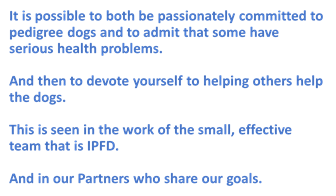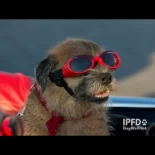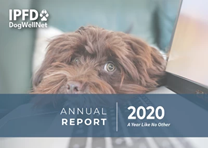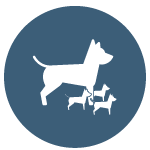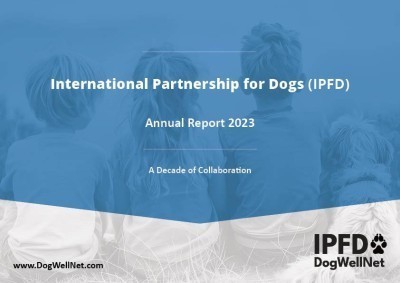Report Entry
-
The International Partnership for Dogs
The International Partnership for Dogs (IPFD) is a non-profit organization leading a global, multi-stakeholder effort to enhance dog health, well-being, and welfare.
-
~ IPFD Milestones to November 2021 - Report to Partners ~
- international collaboration
- genetic testing
- hgtd
- grihp
- kennel club
- breed club
- brachycephalics
- pedigree dogs
- all dogs
- dog health workshop
- dog health
- dog welfare
- golden retriever
- bernese mountain dog
- black russian terrier
- pugs
- finnish spitz
- rhodesian ridgeback
- rottweiler
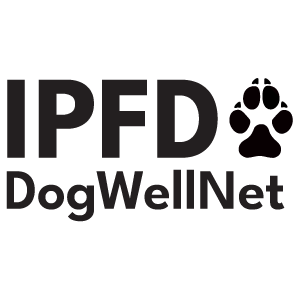
Note: This article is available for download in multiple formats:
PDF (letter size):
The International Partnership for Dogs 2021 Milestones Final 9 Nov.pdf
MS Word (letter size):
The International Partnership for Dogs 2021 Milestones Final 9 Nov.docx
PDF (A4 size):
The International Partnership for Dogs 2021 Milestones Final 9 Nov A4 Sheet.pdf
MS Word (A4size):
The International Partnership for Dogs 2021 Milestones Final 9 Nov A4 Sheet.docx
Responsibility – the big picture for dog health and welfare.
Who: Kennel and Breed Clubs, Breeders; Legislators and Regulators; The Public/Consumers; Veterinarians and the Veterinary Profession; Researchers/Research Institutions; The Pet Industry; Welfare Organizations/Shelters; Producers and Distributors.
IPFD: has a multi-stakeholder, Big Picture approach to the complex challenges of dogs, breeds, and human-dog interactions; works to provide resources, inform, assist actions for health and welfare, and bring these stakeholder groups into collaboration and cooperation. There are few (if any other?) international organizations who can operate at arms length, independently to address the breadth of challenges in dog (pedigree and all) health and welfare.
IPFD was initiated by major kennel clubs (KCs) and key pet industry groups who shared a commitment to maintaining and improving the health of dogs – true leaders in the world of dogs.
Information Sharing and Collaboration 2021Genetics and Genetic Testing:
IPFD’s Harmonization of Genetic Testing for Dogs (HGTD) - Information on 82 international genetic test providers (GTPs) with 45 actively participating in 22 countries. The includes all the major phenes (tests) sold for use in dogs and is integrated with latest research and clinical information; with additional breed-specific information on test usage or application in the breed(s).
An important development is the Breed Relevance Ratings (BRR) and a new Key Comment feature that help breeders/advisors select tests that are most valid.
Breed-specific genetic testing information is being integrated into Get a GRIHP! developments (see later), and further genetic testing and counseling resources are available in articles and blogs by Aimee Llewellyn-Zaidi, our HGTD project director, including new entries in 2021 on, e.g., Ask Aimee: What's the difference between pedigree COI and genomic COI?.
International Dog Health Workshop – Virtual Presentation 2021
Virtual Meeting of 36 decision leaders in genetics of dogs including kennel club advisors, researchers, veterinarians, breeders, and GTPs.
Stimulated by requests from breeders, breeding advisors, and others involved in dog genetics. Topic: Standardizing Genetic Testing – Helping consumers navigate across GTPs; improving the accuracy and completeness of reporting; decreasing confusion.
Outcomes: working groups on standardization, commitment of major GTPs to make changes; providing clarity on direct and linkage testing. All participants indicated they would participate in a future meeting on other topics of interest.
IPFD is uniquely posed to promote and provide this level of collaboration across these groups and ensure that actions come forward.
International Issues in Genetics for Kennel Clubs
Prompted by colleagues at the French Kennel Club. Topic: DNA profiles for individual dog identification and parentage testing – what KCs are doing relative to developments by major commercial GTPs.
IPFD surveyed of our partner KCs and compiled answers on what each is doing/planning and shared with participants. Online private discussion/Q&A among KCs. Plans for a virtual meeting couldn’t be scheduled in 2021, planned for 2022.
Contributing Partners:
Breed Specific Work – A Core IPFD Activity
Get a GRIHP! on Breeds
Our 2021 Breeds of the Month featured links to our Pedigree Breeds Database, which now contains updated information, videos, links to kennel and breed clubs on 180 breeds as well as links to other content on DogWellNet.com, such as:
Get a GRIHP! Globally Relevant Integrated Health Profiles (GRIHPs), which describe the Big Picture of health on (all) conditions that are of interest within a breed. Get a GRIHP! breeds for 2021 include: Golden Retrievers, Bernese Mountain Dogs, Black Russian Terriers, Pugs, Finnish Spitz, Rhodesian Ridgebacks, and Rottweilers (November).
All include information on national populations, breed statistics – including from our Partner Agria, health strategies from Swedish RAS, and Finnish PEVISA and JTO documents; as well as recommended and required health tests from the UK, Sweden, Finland, and the USA, and where possible from other breed clubs.
GRIHP articles are published in concert with presentations in the World Small Animal Association (WSAVA) Bulletin. See below. WSAVA is an IPFD Collaborating Partner.
Highlight success stories – e.g., Finnish Spitz, highlighting the actions of the Finnish Breed Association for the health of this breed; Link
Highlighting Actions by Partners
On our social media channels and in our Digest.
Blogs e.g., for breeders:
· Good Breeders follow ALL their puppies! And share the data.
· 4th International Dog Health Workshop - 2 Years On
· Is it "tough talk" or "open dialogue" - and why is it a challenge in the dog world?
· Artificial Insemination in Dogs - Recent Information and Misinformation. Excerpt: “A recent post(s) on CRUFFA re: "Good news! Another step in law enforcement in the Netherlands. Standard artificial insemination is forbidden in the Netherlands for dogbreeding." is an inaccurate or, at best, incomplete description of the situation.”
And more
Getting the Balanced, Big Picture Message out
WSAVA Bulletin – updating veterinarians’ information on breeds; 8 presentations in 2021; breed and health information; linked to Get a GRIHP! articles highlighting work of breed and kennel clubs. Trying to present a mix of healthy and challenged breeds. See WSAVA Meet the Breed
Presentations to:
· The Canadian Kennel Club (CKC) – How international activities affect national KCs
· The Canadian Veterinary Medical Association (CVMA) – Veterinarians and the brachycephalic issue; focusing on challenges of practitioners; highlighting problems with unilateral approaches; encouraging collaboration with the CKC.
· Starting organization of joint symposium for breeders, judges, and vets with CVMA and CKC.
· Embark Canine Health Summit together with Westminster KC: IPFD participation in two panel discussions on genetic testing in pedigree dogs.
Veterinary Information Network (VIN) article:
Written in response to an article about the Norwegian legal situation and "Calls for bans on breeding short-nosed dogs gain momentum".
Banning brachycephalic breeds is unrealistic by Brenda N. Bonnett. Excerpts:
“I recognize that the article was intended to have a limited scope, but my concern is that we are missing the big picture. To see it, we need to consider the bonds between millions of "brachys" and their owners, the influence of the pet industry promoting these dogs, how veterinarians have played a role in normalizing them, and the consequences of banning these breeds, if that were even possible.”
"What we can be sure of is that a better future for dogs — and veterinarians — requires a coordinated, multi-stakeholder responsibility for recognizing and addressing the problem. Isolated actions have not been overly successful in the past and are unlikely to work in the future. Breed bans and unilateral legislative actions are likely to be unenforceable, at best. Kennel club breeders should step up and make the effort to improve their breeds. But expecting them to solve the problems at a societal level is unrealistic. If people want these types of dogs, demand will support the supply, from whatever sources can be found.”Chapter in a new book edited by Rowena Packer and Dan O'Neill, Health and Welfare of Brachycephalic (Flat-faced) Companion Animals, on international aspects and actions by Dr. Bonnett, and others. From the introduction:
“The issues affecting brachycephalic breed health and welfare are wide-ranging and complex for individual dogs, breeds, populations, dog owners, researchers, veterinarians and society in general.
… Although scientific and clinical knowledge have increased markedly, reliable data on the true prevalence of severe health and welfare conditions within and across these breeds has been slow to accrue, or to be effectively utilised even when available (IPFD 2020c).
… At a societal level, public concern and even outrage about poor dog welfare, in general, and for brachycephalic breeds, in specific, have motivated regulators and government agencies, with issues arising from and influenced by long held and even historical attitudes. However, those in favour of promoting brachycephalic types of dogs/breeds are also passionate and committed. Cultural, socio-economic and national differences complicate the situation across countries and groups (Bonnett 2020). Sourcing of dogs, breeding, trade, transport, and marketing are factors involved in the interplay between animal welfare and the human desires to breed and own brachycephalic dogs. Unfortunately, the need to address public opinion may result in actions that fail to adequately take into consideration the complexity of the problem(s) or fully engage the range of parties needed for successful actions and outcomes (Bonnett 2019a, DogWellNet 2020b, IPFD 2020b)...”Complex situation for Brachycephalic breeds – IPFD receives many requests for information on, and participation in, this issue
The Balanced Message:
· Kennel and breed clubs have a responsibility to address current and future health problems in these breeds – HOWEVER –
· They cannot be alone in these efforts. Most dogs in most countries are produced outside of KC influence. Many actions by legislators, welfare groups, and veterinarians are narrow and short sighted and will spawn unintended consequences.
· These items are stressed repeatedly by Dr. Bonnett in articles on DogWellNet.com, in presentations to vets, vet organizations, welfare groups and articles in veterinary media.
· What other organizations that are NOT KCs are driving home these points?
· How many are pushing veterinarians to collaborate with breed clubs and kennel clubs?
· There are several well-recognized, compromised breeds and many relatively health pedigree breeds. IPFD tries to maintain that balance in all discussions.
IPFD’s role – promote collaboration; keep breeders and kennel clubs and other stakeholders aware of international developments· Point out errors and inappropriate actions – e.g., VIN article; highlight the complexities – in discussions with other stakeholder groups, e.g., humane and vet organizations.
· In the absence of cooperation and collaboration, we are seeing unilateral actions by:
· Legislators – e.g., in the Netherlands
· Veterinarians – e.g., petitions, videos
· Welfare groups – public campaigns, legal action
· There are many, many brachycephalic dogs – popularity has surged. This is causing stress among veterinarians dealing with increased health and welfare problems.
· Many dogs of certain breeds have significant health issues due to their conformation.
· Are most dogs from pedigree breeders? No. Even if many owners think their dog ‘has papers’, etc.
· Are all pedigree dogs free of these problems? No.
· What influence do pedigree breeders and breed standards have on people wanting to own these dogs? Unknown.
What can pedigree breeders and kennel clubs do to lead and protect health and welfare? Some are being very proactive. Some have been terrific leaders, especially in the recent past. The pedigree world leading in stewardship is so needed.

Other work with stakeholders in 2021:
Dr. Bonnett served on the Advisory Group for Mars Petcare’s “End Pet Homelessness” initiative.
Work with WSAVA, Anicura, and others on development of Industry Standard Breed Names to improve information sharing and promote collaborative research.
Supported initiative out of 4th IDHW: creation of the International Collaborative on Extreme Conformation in Dogs (ICECDogs). Independent group (but hosted on DogWellNet.com) supporting national multi-stakeholder organizations. Together with Royal Canin and other Partners.
Our PeopleDr. Brenda Bonnett, founder of IPFD and its CEO since the organization’s formation in 2014, has started a process towards retirement and has stepped down as CEO as of the 31st of October 2021. Brenda will continue to share her expertise with the international dog community as IPFD’s Veterinary Science Officer.
Dr. Katariina Mäki, who joined IPFD as Business and Project Coordinator in August, has assumed the role of Acting CEO; there will be a call for applications for the CEO position shortly.
Ulf Uddman, former CEO, SKK, continues as Chief Financial Officer
See Profiles of Officers and Board
The Board:
Pekka Olson, former President SKK, Veterinarian, Chair
Bill Lambert, The Kennel Club, UK, Vice Chair
Alexandre Balzer, President SCC, France
Peter Friedrich, President VDH, Germany
Barbara Thiel, Veterinarian, Germany
Marty Greer, Veterinarian, USA
Dave Eikelberg, BRTCA member, USA
Kirsi Sainio, University of Helsinki, Finland
Updated IPFD videos, including:
 IPFD: For the Love of Dogs… and for the people who love them
IPFD: For the Love of Dogs… and for the people who love them
See our 2020 Annual Report for more information:

https://dogwellnet.com/content/international-actions/international-dog-health-workshops/ipfd-virtual-international-dog-health-workshops-2021-r745/
The International Partnership for Dogs (IPFD)
Report Entry
-
Our Signature Work
Our Platform - DogWellNet.com

DogWellNet.com is the online platform for IPFD and is a curated information hub as well as housing resources to support actions by IPFD and its Partners and Collaborators.
International Dog Health Workshops

The IPFD's signature events, the IDHWs bring together decision makers from professional, regulatory, national and regional, welfare and other organisations that are stakeholders in dog health, well-being and welfare and human-dog interactions under the tagline 'From Information and Collaboration to Action'. The 5th IDHW takes place 13-15 June 2024, in Helsinki, Finland and will be co-hosted by the Finnish Kennel Club.Harmonization of Genetic Testing for Dogs Database

The HGTD Database catalogs information provided voluntarily from genetic test providers (GTPs) including information on their company and services, quality measures and expertise, tests offered and more. We are continually engaging more GTP participants. IPFD has collated and assembled existing and new resources for genetic counselling and education and provided the foundation for further developments.
Health Strategies Database for Dogs

The HSDD Database includes breed-specific health/mentality testing requirements and recommendations established by Health Strategy Providers (HSPs) including kennel clubs, breed clubs, veterinary organizations, and others.
Pedigree Breeds Database
As of March 2024, our Pedigree Breeds Database lists 184 breeds. Information includes breed standards, population data, club newsletters, breed databases, videos and much more. Sections on Native Breeds and Additional Resources including Agria Breed Profiles; Globally Relevant Integrated Health Profile (GRIHP) articles, which describe the Big Picture of health on (all) conditions that are of interest within a breed; and associated IPFD WSAVA Meet the Breed articles are available. Many thanks to breed experts and clubs who share information on their breed with the DogWellNet.com Community.
Download IPFD's 2023 Annual Report: A Decade of Collaboration and other annual reports here!
 Donate
Donate
